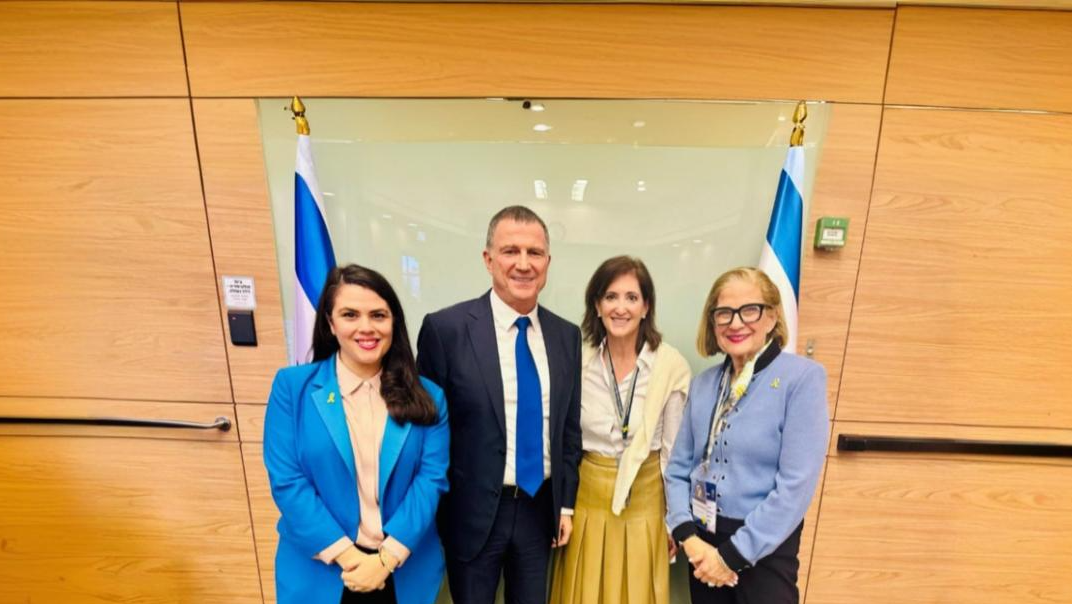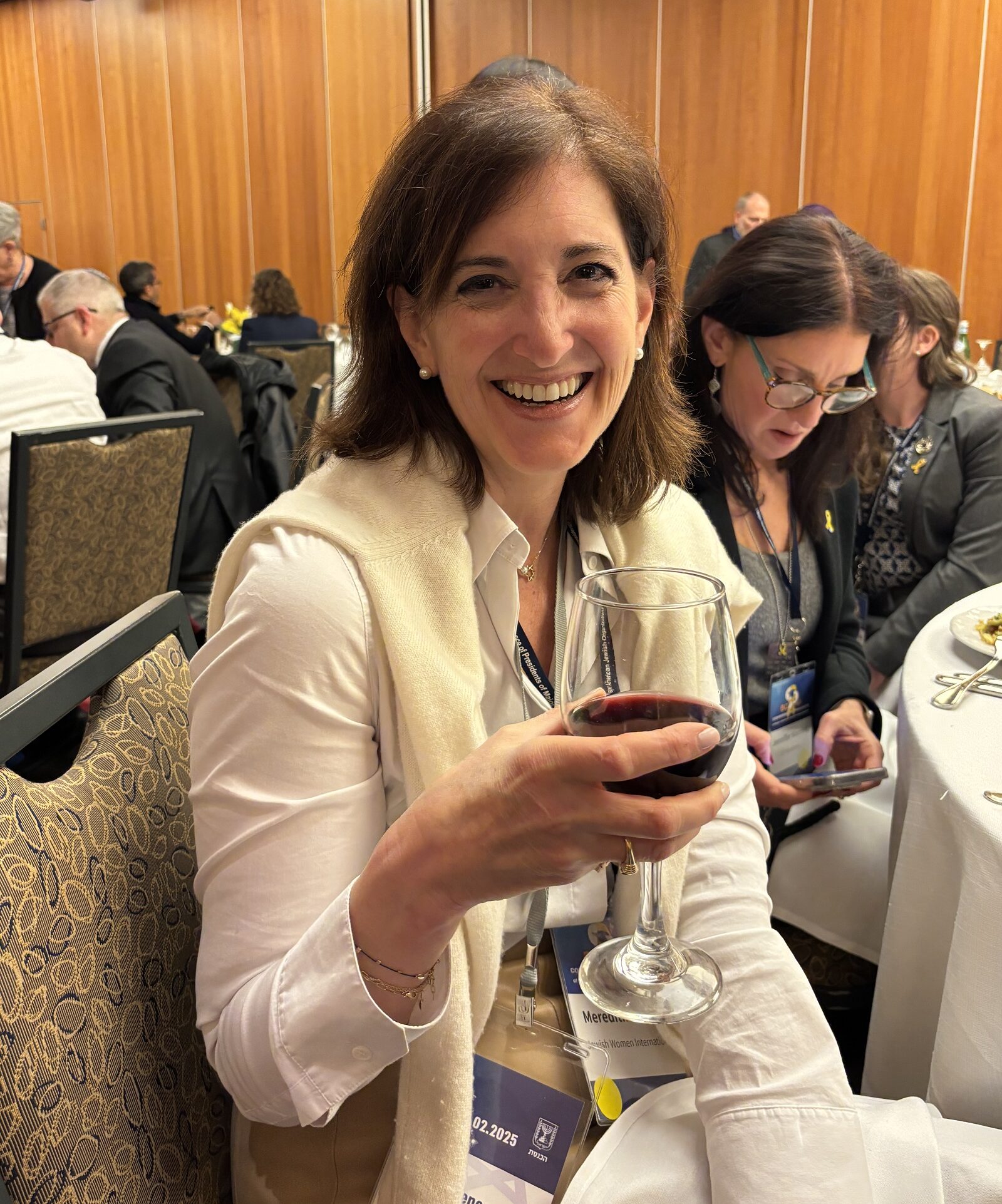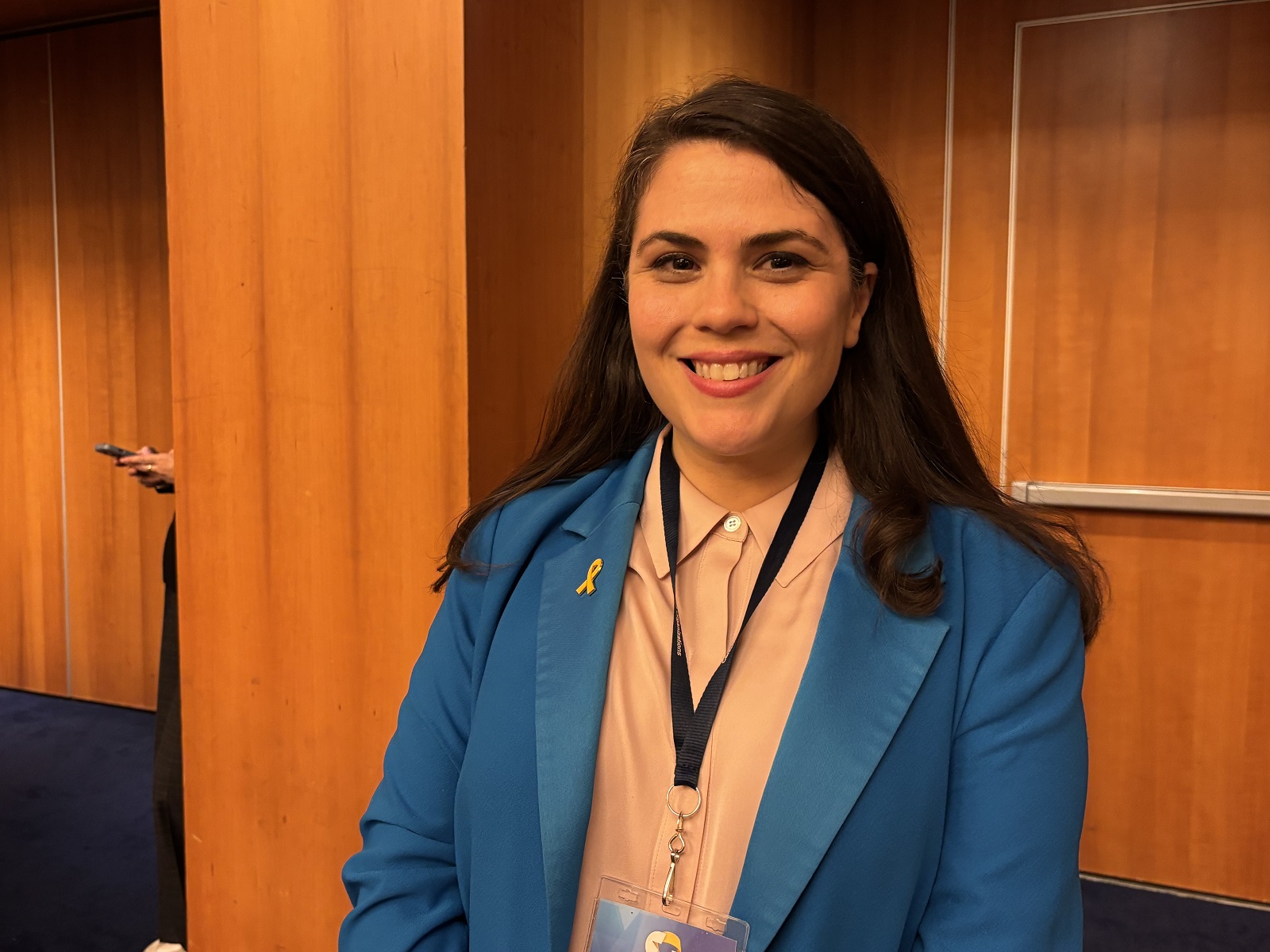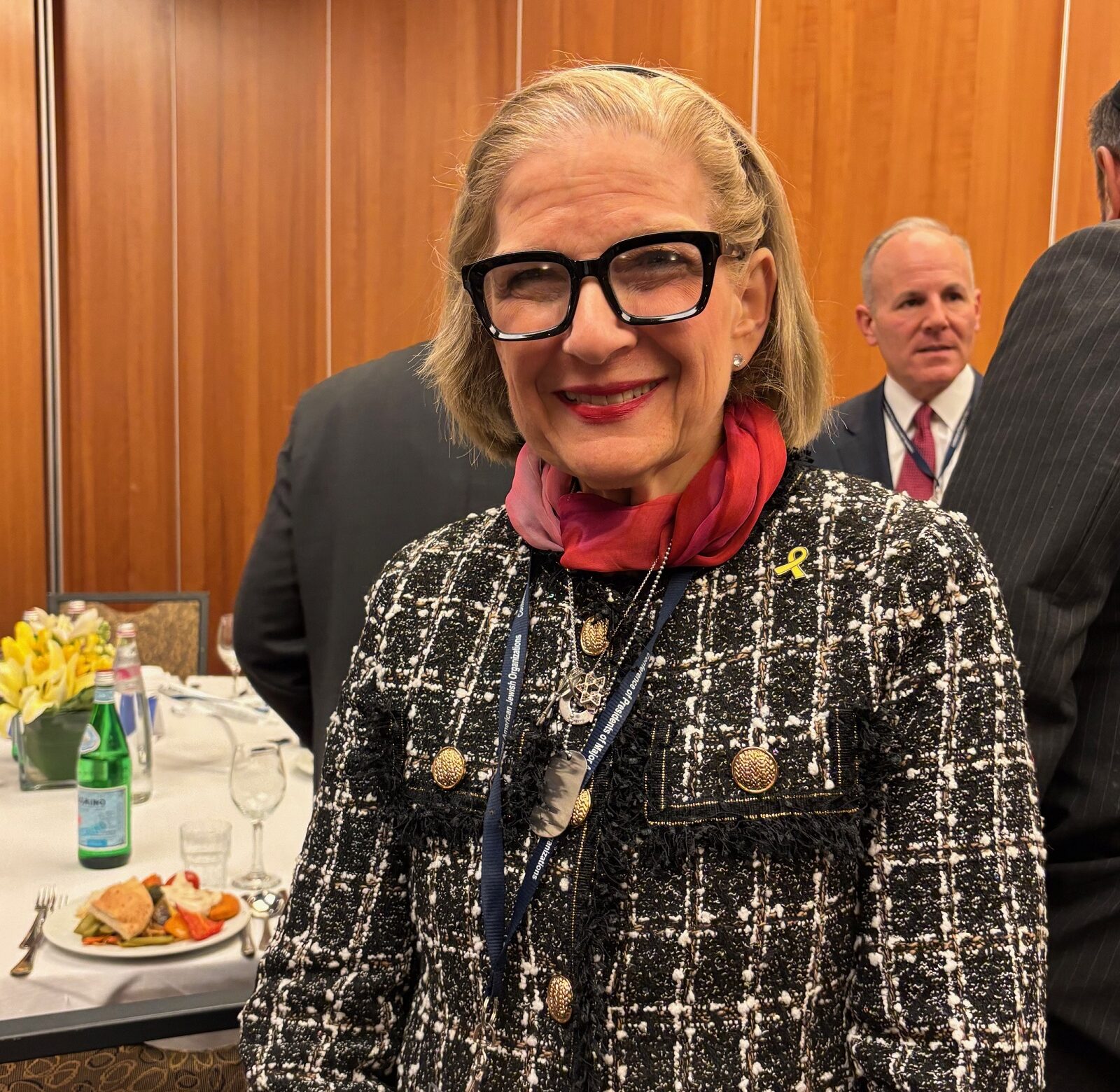‘The Jewish Community Is Changing’: Women Leaders Dominate Conference of Presidents Mission to Israel
At the Conference of Presidents mission to Israel, women outnumbered men for the first time among 65 delegates at 50th-anniversary events, sparking fresh dialogue on the future of Jewish leadership
For the first time in the history of the Conference of Presidents of Major American Jewish Organizations (CoP) missions to Israel, women outnumbered men among the delegates.
During the 50th-anniversary events, which took place from Sunday through Thursday, mostly in Jerusalem but also across Israel, female leaders filled the room—CEOs, board chairs, and other influential figures in Jewish communal life. While women made up just over half of the roughly 65 delegates, the shift did not go unnoticed.
Conversations buzzed in hallways and at gatherings as attendees reflected on what this changing dynamic could mean for the future of Jewish leadership.
“I think the Jewish community is changing. The Conference of Presidents is reflecting that, and you’ve got some really strong female leaders here,” Meredith Jacobs, CEO of Jewish Women International, told The Media Line.
Jacobs credited the increased number of women on the mission in part to the efforts of CoP CEO William Daroff and COO Stephanie Hausner, who have prioritized female leadership. Still, she noted that despite progress, a significant gap remains in the number of women holding top roles in major Jewish communal organizations.
A 2009 Jewish People Policy Institute report highlighted this disparity, showing that while women comprised 75% of staff in Jewish communal organizations, only 14% of CEOs were female—far lower than the 45% of women leading nonprofits in the broader US sector at the time.
Progress has been slow but steady.
By 2022, a Forward analysis found that women now lead 43% of the roughly 150 Jewish federations in the US and Canada. However, the report also pointed out that most of these women head smaller or mid-sized federations, rather than the largest and most influential ones.
Sheila Katz, CEO of the National Council of Jewish Women, emphasized that while this mission had strong female representation, many women in leadership roles still head women’s organizations or smaller social justice groups, rather than larger, well-funded institutions.
“There’s still work to do,” she said, “but it is better now than it’s ever been.”
Many women leaders expressed optimism, believing that it is only a matter of time before more women rise to top positions.
Carol Ann Schwartz, national president of Hadassah, noted that more Jewish organizations are finally recognizing the talent pool of qualified women.
“It’s wonderful to see that it’s finally coming to fruition,” she told The Media Line.
Throughout the conference, women leaders actively collaborated, even hosting a morning coffee gathering to strengthen their connections and discuss opportunities for partnership—away from their male counterparts.
We are starting to see a camaraderie form between the women, lifting each other up
“We are starting to see a camaraderie form between the women, lifting each other up,” Katz said.
Their strong presence also pushed key issues to the forefront of high-level discussions, which Jacobs said might not have happened without such significant female representation.
Give the gift of hope
We practice what we preach:
accurate, fearless journalism. But we can't do it alone.
- On the ground in Gaza, Syria, Israel, Egypt, Pakistan, and more
- Our program trained more than 100 journalists
- Calling out fake news and reporting real facts
- On the ground in Gaza, Syria, Israel, Egypt, Pakistan, and more
- Our program trained more than 100 journalists
- Calling out fake news and reporting real facts
Join us.
Support The Media Line. Save democracy.
One of those issues took center stage on Tuesday when the delegation met with Knesset Foreign Affairs and Defense Committee members, chaired by MK Yuli Edelstein. During the session, they called on Israel’s leadership to pressure the United Nations to condemn Hamas and hold it accountable for its systematic use of sexual violence against women during and after the October 7 attacks.
“Over the last year, the war has impacted women in deeply personal ways,” Schwartz said during the session. “We met with UN leaders and mobilized over 150,000 grassroots signatures from nearly 120 countries, alongside 120 collaborative organizations, to demand that the United Nations speak out and hold Hamas accountable.”
The UN has yet to list Hamas as a party suspected of committing patterns of rape in armed conflict or hold the terrorist organization accountable for these crimes against humanity
She stressed, “The UN has yet to list Hamas as a party suspected of committing patterns of rape in armed conflict or hold the terrorist organization accountable for these crimes against humanity. We will not give up. Sexual violence in conflict is increasing worldwide, and accountability is key to preventing future atrocities.”
Jacobs also addressed the broader impact of Hamas’ crimes on Jewish women worldwide.
As Jewish women, our bodies share the pain—the impacts of dehumanization, objectification, and hate that are playing out on our campuses and beyond
“As Jewish women, our bodies share the pain—the impacts of dehumanization, objectification, and hate that are playing out on our campuses and beyond,” she told the committee. “Jewish survivors of sexual violence no longer feel safe seeking help from mainstream agencies. Those of us in the field have lost colleagues, and women’s studies programs at universities across the United States are teaching that Israel is weaponizing feminism and that Zionists are not to be trusted.”
The lack of response from many international women’s rights groups to the atrocities committed on October 7 has deeply disappointed American Jewish leaders.
Daroff told The Media Line that for decades, Jewish organizations partnered with and supported progressive advocacy groups, only to find that when Jewish women were the victims of mass sexual violence, many of these same organizations remained silent—or worse, actively downplayed what had happened.
For example, UN Women, the United Nations agency for gender equality, issued a statement on October 13, 2023, that appeared to equate Hamas’s brutal attack with Israel’s response. Similarly, the UN Committee on the Elimination of Discrimination Against Women failed to explicitly acknowledge Hamas’s crimes. Meanwhile, in the immediate aftermath of the attack, the global #MeToo movement made no mention of Hamas’s sexual violence, nor did it speak out on behalf of the Israeli women who were raped, tortured, and murdered.
While some international organizations have since adjusted their stance, acknowledging the scale of the atrocities, their initial silence left many Jewish women’s groups feeling abandoned. Leaders say this lack of solidarity was a stark reminder of their challenges—not just in breaking through the glass ceiling in their own communities but also in ensuring that Jewish women are included in the broader global fight for women’s rights.
‘Bridging the ocean’
Daroff said the Conference of Presidents has long served as the central voice of American Jewry on key issues, particularly US-Israel relations. Speaking at the mission’s opening event Sunday evening, he emphasized the importance of strengthening the ties between Israel and the Jewish Diaspora. The event, which featured Prime Minister Benjamin Netanyahu, was held at the Inbal Hotel in Jerusalem.
“These missions are not simply symbolic,” Daroff said in his speech. “They are a testament to our ongoing commitment to strengthening this bond, not merely in words or advocacy, but in action. For decades, we have bridged the ocean between our two nations, reinforcing our shared destiny.”
Former US Special Envoy for Combating Antisemitism Elan Carr echoed this sentiment. Now chair of the Israeli-American Council, Carr said the delegation had come to Israel “to show absolute, unequivocal support for the State of Israel, for the unity of the Jewish people, and for our victory.”
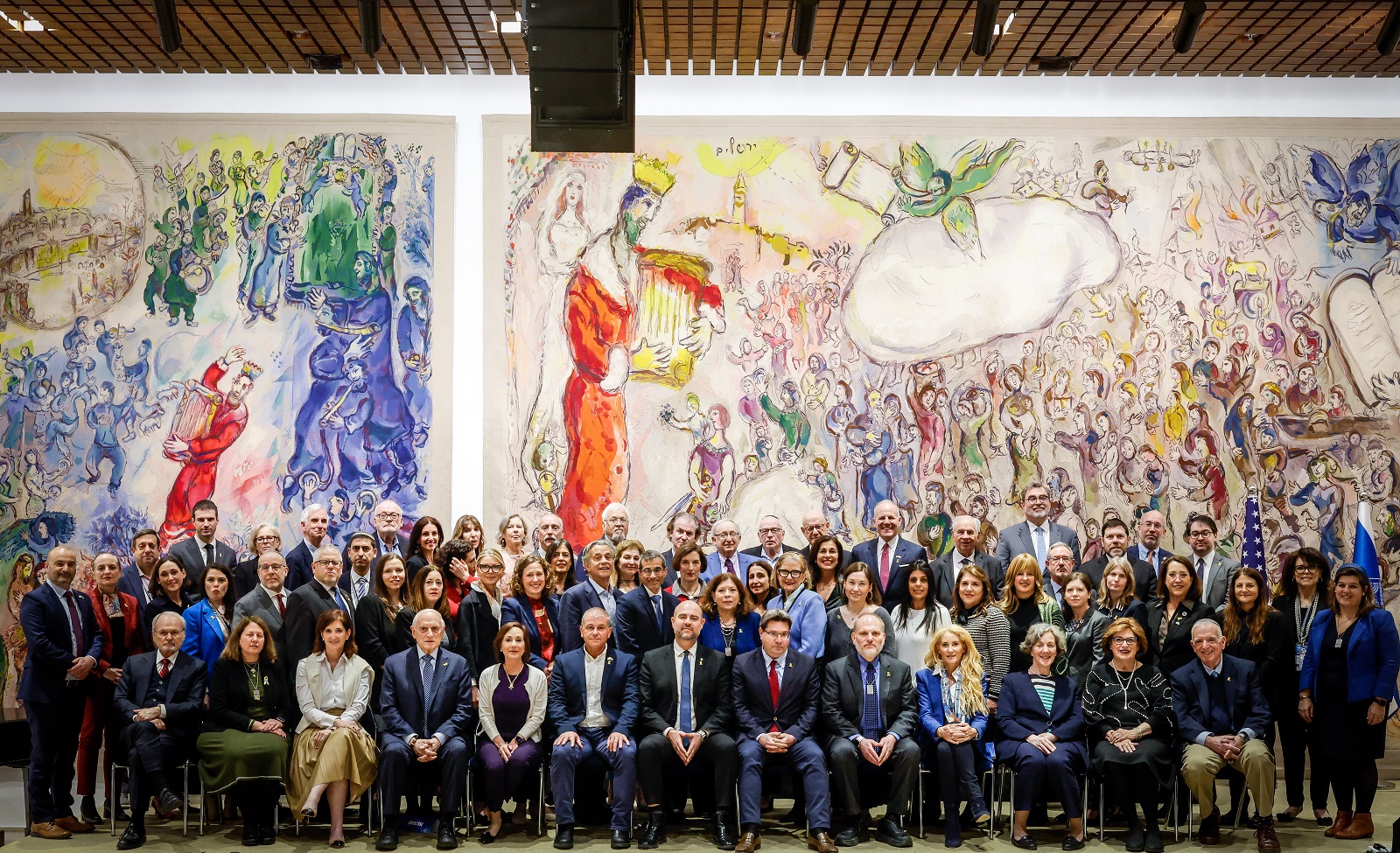
Members of the Conference of Presidents of Major American Jewish Organizations meet with Knesset Speaker Amir Ohana at the Knesset in Jerusalem, Feb. 18, 2025. (Noam Moskowitz/Knesset)
He stressed that Israel must win not only its physical battles against regional enemies but also the broader fight against rising antisemitism in the Diaspora.
“Jews are being threatened, and it’s intolerable, and we won’t tolerate it,” he told The Media Line. “What Israel faces here in the Middle East, and what we’re facing in the United States, Canada, Australia, Europe, and beyond, is the same war—it just has different fronts. This is a war against the Jewish people worldwide. We’re going to win that war, and that’s what we’re here to say.”
One of the most discussed topics during the mission was US President Donald Trump’s proposal to encourage Palestinians to leave Gaza and for the United States to take control of the coastal enclave. While Israel has overwhelmingly supported the idea, the American Jewish community remains divided.
Some organizations have backed the plan, including CoP’s Daroff, who has spoken favorably about it in interviews. Others, including Katz’s National Council of Jewish Women, strongly oppose the proposal.
Still, despite policy differences, participants emphasized the importance of maintaining open and respectful dialogue.
“I don’t know if we see eye to eye with the Israeli government, but everyone is focused on the same issue right now, and that issue is ending the war and bringing all the hostages home,” Schwartz said. “We are truly seeing a resurgence of unity in our Jewish communities. More Jews are stepping up—people who, in the past, may have only identified as Jewish in name but weren’t Zionists. Now they’re saying, ‘It does matter that I call myself a Jew. It does matter that I support Israel’s right and responsibility to defend its citizens.’”
Katz expressed similar sentiments, saying that while American Jews may have differences in political views, the overwhelming majority care deeply about Israel’s security and well-being.
Since the October 7 attacks, Jewish leaders have spoken of what some are calling “the surge”—a growing number of Jews, especially younger ones, engaging with the Jewish community in ways they had not before. The sharp rise in antisemitism has played a role, but leaders say it has also sparked a realization of Israel’s importance and the need for Jewish Diaspora support.
“I think all of a sudden, what we took for granted as American Jews has been challenged,” Jacobs said. “I find hope in the young people who are reaching out, joining Jewish organizations, and seeking community. They’re recognizing how fragile something we all took for granted really is.”
Jewish activist and influencer Aviva Klompas, who attended some of the mission’s public events, emphasized the importance of fostering deeper connections between Israelis and Diaspora Jewry.
“We’re always talking about the importance of listening to one another—for Israelis to listen to global Jewry, and vice versa,” she said. “The stakes have never been higher. This opportunity to be together, spend time, listen, and understand where we can partner is really important.”
This was the second CoP mission to Israel since the war began. Former CoP CEO Malcolm Hoenlein emphasized that many attendees had returned to demonstrate their continued support for the Israeli people.
“We don’t take sides, we don’t support parties. We support Israel,” he told The Media Line. “At this very critical time, that support is more important than ever.”
Daroff reinforced the idea that unity is the key to Jewish resilience.
“Our history shows that unity is our greatest strength,” he said. “It has allowed the Jewish people to survive and thrive for 3,500 years and will continue to sustain us in the challenges ahead.”
